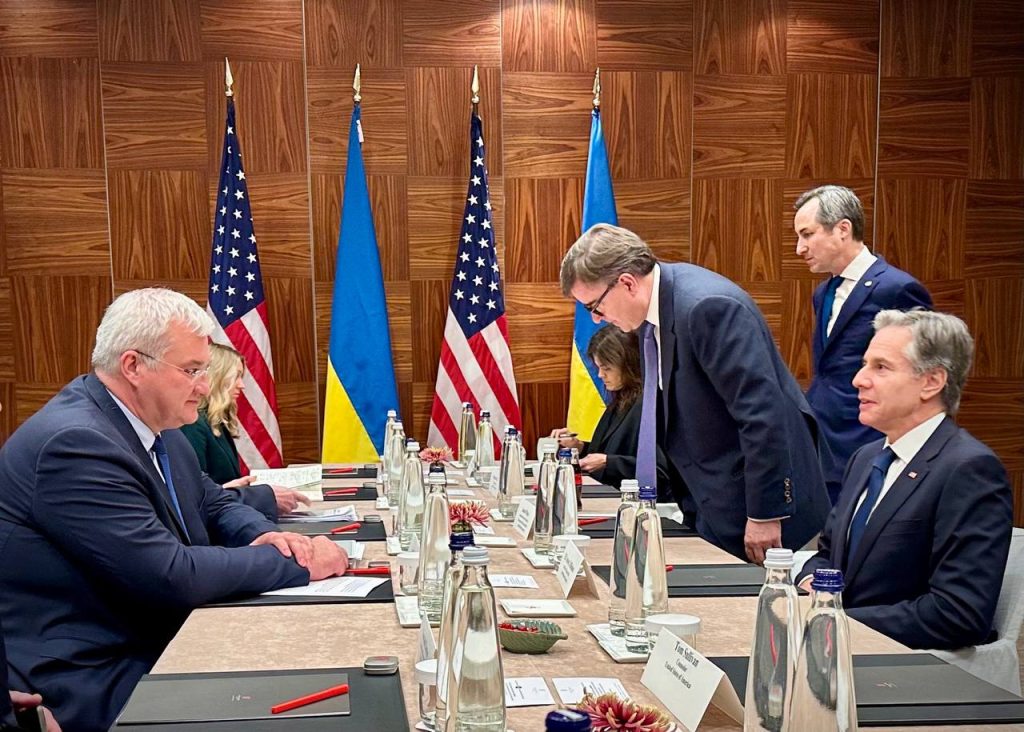Ukrainian Foreign Minister Andrii Sybiha met with U.S. Secretary of State Antony Blinken in Brussels for bilateral talks, the topic of which was not disclosed. The meeting followed a pledge by the U.S. administration to increase support for Ukraine before President Joe Biden’s term ends in 2025. Blinken announced plans to boost military assistance to Ukraine in the final months of the administration to ensure maximum support before Donald Trump takes office. Western countries are also working to “Trump-proof” their support for Kyiv, with efforts reportedly including U.K. Prime Minister Keir Starmer’s push for Ukraine to use Western-supplied long-range weapons and release $20 billion in aid.
The urgency in ramping up support for Ukraine stems from uncertainty surrounding Trump’s plans for the country, as he has not provided detailed information but promised to end the war within 24 hours of winning the election. This lack of clarity has led analysts and global capitals to speculate about Trump’s intentions, with some concerns about potential escalations in the conflict. Trump allegedly warned Russian President Vladimir Putin not to escalate the war in a phone call after his victory, but the Kremlin denied that such a conversation took place. The situation remains fraught with uncertainty as various parties navigate the shifting political landscape.
In a surprising move, President-elect Donald Trump announced his choice of Fox News host and veteran Pete Hegseth as the incoming U.S. Defense Secretary. Trump made the announcement on Truth Social, stating that if confirmed by Congress, Hegseth would replace current Defense Secretary Lloyd Austin after Trump’s inauguration on Jan. 20. This decision has raised eyebrows and prompted questions about Hegseth’s qualifications and suitability for the role, given his background in media rather than military or defense policy.
The appointment of Pete Hegseth as Defense Secretary has sparked debate and concern about the direction of U.S. defense policy under the incoming administration. Critics point to Hegseth’s lack of experience in defense and national security matters, as well as his ties to right-wing media, as potential drawbacks to his suitability for the role. Some worry that his appointment could signal a shift towards more aggressive and confrontational foreign policy approaches, particularly in relation to hotspots like Ukraine and Russia. The decision has left many observers and analysts pondering the potential implications of Hegseth’s appointment for U.S. national security interests.
As discussions between Ukrainian and U.S. officials continue in Brussels, the focus remains on bolstering support for Ukraine amid ongoing geopolitical tensions and uncertainty. Blinken’s pledge to increase military assistance signals a commitment to standing by Ukraine and strengthening ties with Kyiv, particularly in the face of potential challenges from the incoming administration. The efforts to “Trump-proof” support for Ukraine underscore the importance of maintaining solidarity and strategic partnerships in the region to preserve stability and security. The coming months will likely see continued dialogue and cooperation between Western countries and Ukraine to navigate the complex and evolving global landscape.


